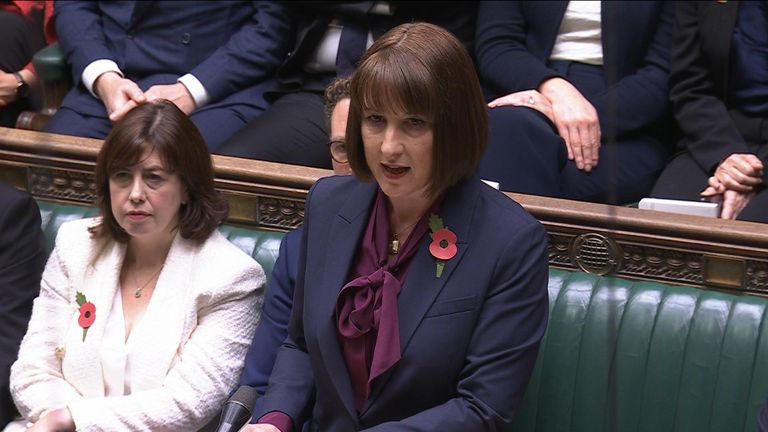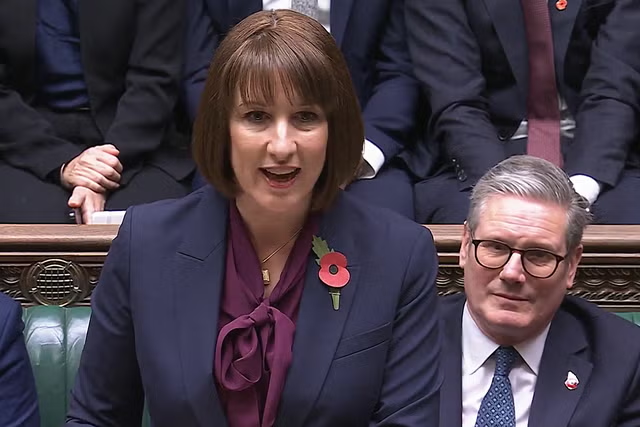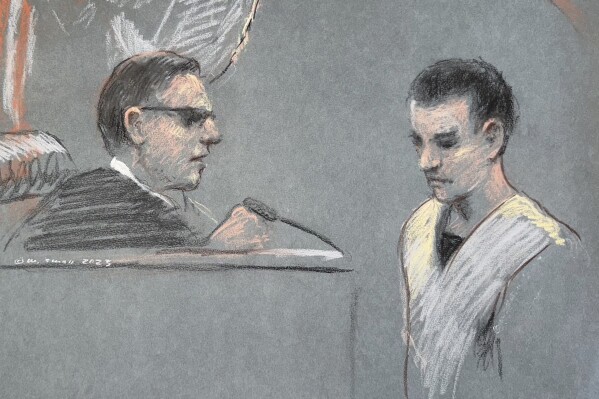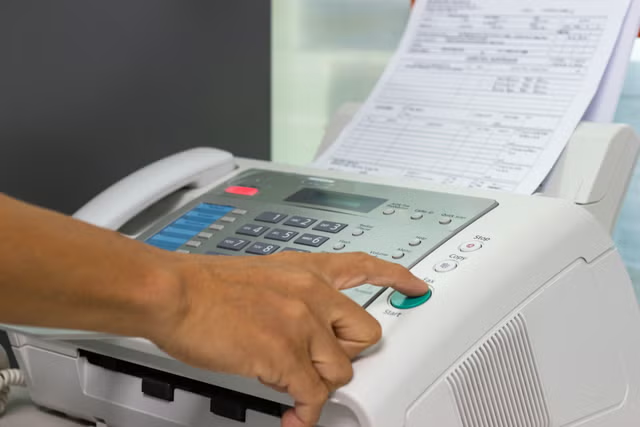The chancellor has finished a statement she's waited a long 16 weeks to deliver - which she claims will start to deliver the change people voted for. But at quite a price.
The headline is tax rises on a historic scale - £40bn raised. Of which £25bn will come from businesses paying more per employee they hire.
The way she's done it, via a big cut to the salary threshold at which employers' national insurance kicks in - from £9,100 to £5,000 will hit those companies employing the lowest-paid workers. Small businesses will get more significant allowances.
The chancellor conceded this huge measure would have an impact well beyond business, and the budget watchdog bears this out - forecasting that 60% of the costs of the policy will be passed on to workers and consumers via lower wages and higher prices.
Those working people the chancellor and prime minister have promised will feel better off in five years.
Follow latest: Biggest tax-raising budget since 1993
This was a budget of clear political choices - a bumper rise in spending for the NHS of £22bn this year in day to day spending - the government will want to make sure it's spent well and waiting lists fall as a result.
And up - capital gains tax, inheritance tax, private school fees, and a cut to right to buy discounts.
Tories will see much of this as class war, the chancellor says it is about a government making the "right choices" and challenged her opponents to say what they would cut instead.
Rachel Reeves spent a good chunk of the start of the statement accusing the Tories of covering up a spending "black hole" and then calling an election to avoid the difficult political choices required to fill it.
The Office for Budget Responsibility confirms that they do not believe they had the full picture and their March spending outlook was "too optimistic".
Read more from the budget:
The key announcements
Chancellor looks to raise £40bn in taxes
Minimum wages to go up by almost 7%
Vindication, the government will say, for the chancellor in saying that these tax rises were not trailed in the election campaign was because she didn't know how bad things were.
But, clearly, a big departure in the scale of tax rises, from what Labour set out, which can't all be pinned on the forecasts.
Among the tax rises which were predicted but didn't materialise were no further freeze on income tax bands beyond 2028 and a surprise continued reprieve in fuel duty and cut for draught beer duty - with perhaps a thought for the tabloid headlines about pints and van drivers.
The constant refrain was of tough decisions but "no return to austerity".
The chancellor has been determined to show anxious Labour MPs and swing voters that her painful tax cuts would mean tangible, visible improvements in public services, not a repeat of the 2010 coalition government's cutbacks.
With the exception of the NHS, and a boost this year for schools, day to day spending is growing but still tight. Next year it will increase by 1.5%, which means difficult settlements for unprotected departments like local government, justice, and welfare.
All this is funded by not just tax rises, some of which voters will feel were not set out in the manifesto; but also higher borrowing under her rewritten debt rules.
Keep up with all the latest news from the UK and around the world by following Sky News
Tap here
Labour have hailed economic growth as the saviour of jobs and public services; but the outlook for that looks anaemic - with growth downgraded for three of the next five years.
The chancellor has promised pain in the short term, for long-term gain, but with these forecasts the next few years could still be a bumpy ride.
Disclaimer: The copyright of this article belongs to the original author. Reposting this article is solely for the purpose of information dissemination and does not constitute any investment advice. If there is any infringement, please contact us immediately. We will make corrections or deletions as necessary. Thank you.



